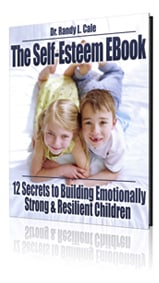We were recently enjoying dinner in a Saratoga restaurant and noticed a table with four adolescent girls, their parents, and a grandmother. The girls were laughing, smiling, engaging with each other as well as with parents and the grandmother. The dinner was notable because there was ease, respect, enjoyment as well as a sense of caring for each other. Repeatedly, turns were taken, and space was made for everyone’s comments.
How did these renegade parents create this atmosphere of laughter and ease? Well, as they were departing, I complimented the mom and asked how she did this. She related that it was simple: no one brings a cell phone to any meal… ever! It’s not allowed for parents or children. This one renegade decision has profoundly shaped how the family spends its time together, and the quality of their relationships.
Why is this so ‘renegade’ in nature? In my world when dining out these days, it is much more typical to see children with their heads down, caught in their phones with gaming, texting, or social media. The parents are often leading the pact in a similar fashion. And if you observe carefully, even though these children are ‘getting what they want,’ it is rare to see happiness and ease during these dinners. What you do see is more drama, more angst, and more anger than happiness.
The Herd is Seriously Off Track
Regardless of where you turn, it is difficult to find evidence for the wisdom of the herd, particularly as it relates to parenting. The data points to the opposite, as almost everyone feels the painful, disappointing consequences of how we have been raising children for the past several decades, and perhaps most pointedly now in recent years.
Estimates suggest that anxiety is five to eight times more prevalent now than it was fifty years ago. At a minimum, this is a 500% increase in anxiety. This epic rise in anxiety and depression is difficult to comprehend, given that most children have lives of relative comfort, ease, and safety. They also have access to more pleasurable activity, more variety, and more resources than any children in history.
Most of us are now more surprised and delighted when treated respectfully by cashiers or clerks. ‘No problem’ has replaced a courteous ‘You’re welcome.’ Most teens cannot look adults in the eye and can’t shake hands without staring at the floor.
College graduates are ill-prepared to work hard, and readily quit or never even engage in their chosen careers. Businesses struggle to keep young employees happy, focused, and committed to working, with businesses struggling to find and keep quality workers.
Over the past fifty years, adolescents and young adults have become increasingly focused on external sources for gratification and reward, rather than seeking those internally. This dramatic shift is in part due to the herd’s tendency to be focused more and more upon the external, including everything from cars, houses, a brand of clothing, Facebook, social media, and a growing obsession with their phones and all that goes with it. The consequence is severe as measures of self-esteem reflect growing fragility, lack of confidence, and an inability to find happiness. These qualities cannot be found with a focus on external sources of gratification.
More children in the herd are doing more things, and yet more does not equal better. It’s only more. But it does create a growing tendency for youth to constantly seek more stimulation and change in order to find satisfaction. But this is like the mouse on the wheel…going nowhere fast.
Children and teens get more while giving less. More physical stuff, and more parties and more vacations. They get more but contribute little. Thus, these children become adults expecting the awesome rewards of life with giving little effort. Such entitlement attitudes leave youth with a sense of disappointment and blame toward the world for cheating them.
Parents in the herd require fewer and fewer responsibilities from children, training them to acquire no understanding of responsibility to family or community. Children and teens become resentful when asked to help out, stating boldly, ‘That is your job mom!’
With relative ease, a dozen more paragraphs could be added to document how the herd is off track. Most of the herd will not read this article, and if they do, they will rationalize their choices to protect themselves from careful self-scrutiny. They tell themselves a story while ignoring the problem behavior and attitude right in front of them.
How about you? Not seeking to pretend? Not wanting your kids to grow up weak and dependent, living in your home at 30 after dropping out of three different colleges? Not wanting an anxious, depressed child? Not wanting to give another lecture on responsibility and have it do nothing? Of course, you don’t!
It’s Time to Become a Renegade Parent!
It is time. There is no room to straddle the fence on this. The herd is shaping your choices and your child’s destiny UNLESS you choose to be a renegade parent. It takes courage and fortitude, but you can do this. Like the mom above, you will discover the profound rewards that renegade decisions can bring to your children.
This is the first in a series of articles on renegade parenting. In future articles, you will learn how to think and act like the renegade parents, and you will acquire the skillset to parent with renegade strength and clarity. Growing strong, resilient children capable of handling life’s demands is not easy, but the renegade parent will have the tools to do this.















